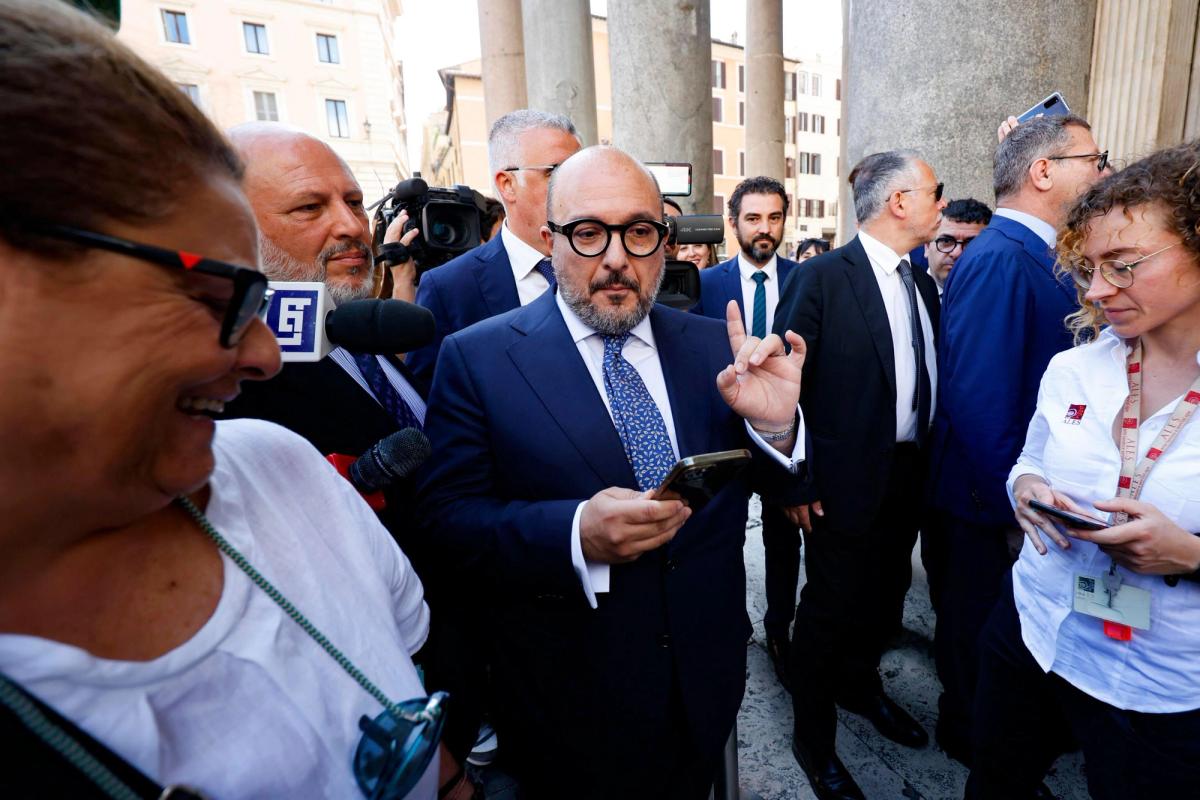Italy’s culture minister, Gennaro Sangiuliano, says that Israel will be represented at this year’s Venice Biennale (20 April-24 November) after thousands of artists and cultural workers signed an open letter calling for the country’s exclusion from the world’s most prestigious art event.
The letter, issued earlier this week by a group known as the “Art Not Genocide Alliance (ANGA)”, has so far been signed by more than 14,500 people including last year’s Turner Prize winner, Jesse Darling, along with other artists such as Joanna Piotrowska, Nan Goldin, Michael Rakowitz and Leila Sansour.
The alliance says it is “an international group of artists, curators, writers, and cultural workers who have come together to call for the exclusion of Israel at the Venice Biennale".
In a statement issued on 27 February, and headlined "No to intolerance. Yes to Israel", Sangiuliano condemned the protest letter, calling it “shameful”, adding: “My deepest solidarity and closeness goes to the state of Israel, its artists and all its citizens. The Venice Biennale will always be a space of freedom, meeting and dialogue and not a space of censorship and intolerance. Culture is a bridge between people and nations, not a dividing wall.”
The ANGA alliance responded in an online statement: “Culture is not a ‘bridge between people and nations’ when one nation is involved in the elimination of another… Freedom of thought and creative expression are only threatened when artists turn away from reality.”
The artist Ruth Patir will represent Israel; her project, entitled the Fertility Pavilion, focuses on contemporary motherhood; the pavilion curators are Mira Lapidot and Tamar Margalit. Patir and Lapidot were contacted for comment.
In a statement given to ARTnews last October, Margalit, Patir and Lapidot said: “We have been left stunned and terrified by the horrendous attacks of 7 October by Hamas that brutally shattered the lives of so many of our relatives, friends and acquaintances. Our immense sense of grief is compounded by profound worry about the escalating humanitarian crisis in Gaza, and extends to the tragic loss of lives there, and what’s still to come.”
The ANGA letter cites historical precedents where other countries have been banned from the Venice Biennale, including South Africa, which was excluded from 1968 to 1993 because of its policy of apartheid.
In the wake of Russia’s invasion of Ukraine in 2022, the ANGA letter adds, the “Biennale and its curator issued numerous statements in support of the Ukrainian people’s right to self-determination, freedom, and humanity”, subsequently accusing the Biennale of being “silent about Israel’s atrocities against the Palestinians”. (Russia will again not be represented this year.)
The Venice Biennale organisers did not respond to a request for comment.
UPDATE: A statement from the Biennale says: "With regard to the participation in the International Art Exhibition of the countries represented in the pavilions of the Giardini, the Arsenale and in the city of Venice, La Biennale di Venezia would like to specify that all countries recognised by the Italian Republic may autonomously request to participate officially.
"Consequently, La Biennale may not take into consideration any petition or call to exclude the participation of Israel or Iran in the coming 60th International Art Exhibition (20 April-24 November).
"La Biennale furthermore notes that the decision to close the Russian Pavilion at the 59th International Art Exhibition in 2022 was made by the commissioner and the curator designated by the Minister of Culture of the Russian Federation, which announced that it would not participate in the coming 60th International Art Exhibition."


